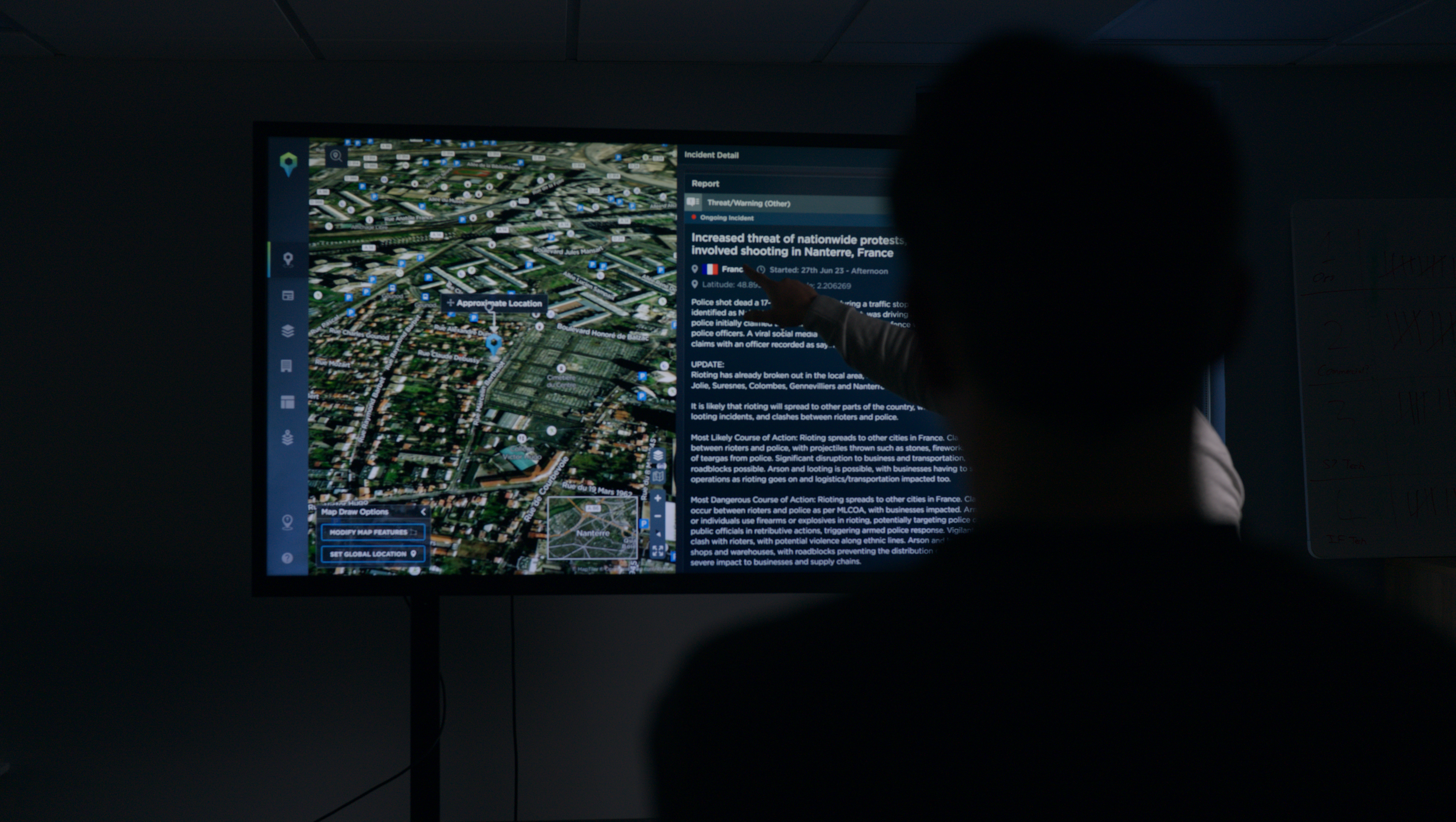Tanker hijack, drone strike in the Gulf: Iran accused of attacking civilian shipping
How the alleged Iran tanker attack and hijacking in the Gulf in the last seven days fit into the wider Iran-Israel tensions and attacks on shipping in the region
Iran has been accused of carrying out two high-profile attacks on shipping in the Gulf of Oman in the past week, both of which have the potential to escalate existing tensions in the region. On 29th July 2021, a British and a Romanian national were killed when an alleged munition drone targeted the MT Mercer Street when transiting al-Masirah Island in the Gulf, with US, British and Israeli sources all blaming Iran for the attack. Days later, on 3rd August, the tanker Asphalt Princess was reportedly hijacked by armed men off the UAE coast before later leaving the vessel. Again, US, UK and Israeli sources blamed Iran for the attack. So what happened during these incidents? What responses are we likely to see? And what is the context behind these attacks on civilian shipping?
Background
Tensions between Israel and Iran have been spilling over into civilian shipping in the Middle East for a while now, with numerous incidents seen since the beginning of 2021. The two nations have carried out tit-for-tat attacks sabotaging civilian vessels in waterways such as the Red Sea and Gulf of Oman, initially just causing minor or superficial damage, seemingly in lieu of directly attacking conventional military targets. On 26th February, for instance, the Israeli-owned Helios Ray was targeted by an explosion northwest of Muscat in the Gulf of Oman that Israeli authorities blamed on Iran; on 10th March, the Iranian vessel Shahr-e-Kord was targeted by an explosion in the Eastern Mediterranean which Iran blamed Israel for, and was likely carried out in response to the February 26th attack.
On 24th March, the Israeli-owned vessel Lori was allegedly targeted with a missile as it travelled between Tanzania and India, with Israeli officials again blaming Iran for the incident. On 6th April, the Iranian vessel MV Saviz was targeted in an explosion in the Red Sea off the coast of Yemen, allegedly caused by mines attached to the vessel’s hull. Iran blamed Israel for the attack. The MV Saviz had previously been seen with military personnel on board, and is believed to have been used as an intelligence-gathering asset by the Iranian Revolutionary Guards Corp (IRGC). On 13th April, the Hyperion Ray was damaged, allegedly after an unspecified projectile was fired at it by Iranian forces – this attack came days after the well-publicised attack on the Natanz nuclear facility in Iran on 11th April, which Iranian authorities claimed was carried out by Israel. The attack was likely in response to both the Natanz incident as well as the previous tit-for-tat attacks.
More recently, on 4th July, a formerly Israeli-owned vessel, the CSAV Tyndall, was targeted by a missile when sailing through the northern Indian Ocean – until recently the cargo ship had been owned by Zodiac Maritime, led by the Israeli billionaire Eyal Ofer, but was no longer owned by the firm at the time of the attack. An anonymous Israeli national security official was quoted in a New York Times report suggesting that faulty intelligence from Iran had led it to target the vessel. Zodiac Maritime manages the MT Mercer Street, targeted in the deadly drone IED attack off the coast of Oman on 29th July.
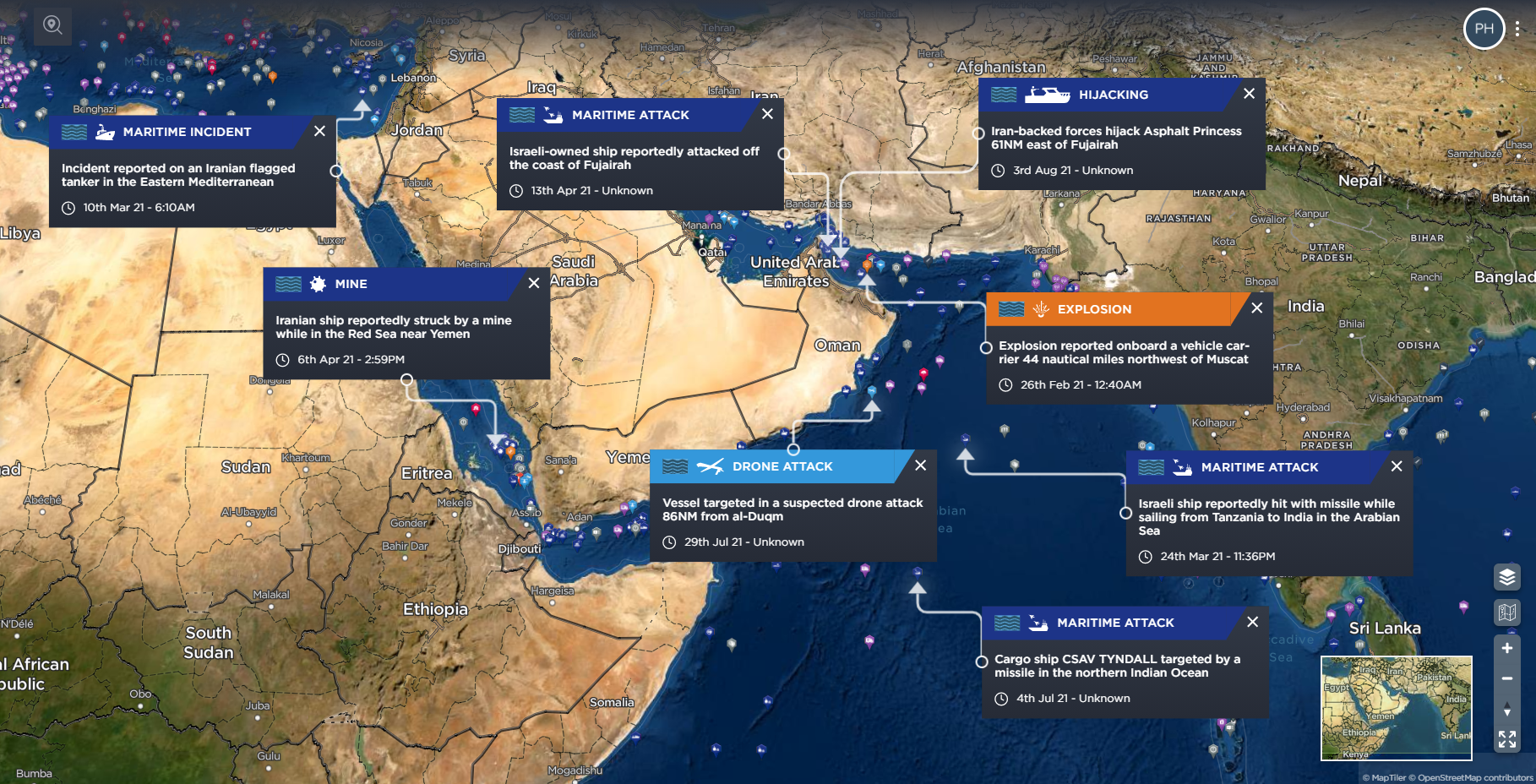
Iran and Israel have exchanged accusations of carrying out attacks on each other's vessels in 2021 [image source: Intelligence Fusion]
What happened in the Gulf in the last week?
Attack on Mercer Street
On 29th July, the Liberian flagged oil products tanker Mercer Street was reportedly attacked by ‘one way explosive UAVs’ according to the U.S. Department of State. The alleged attack occurred as the vessel was transiting through the North Arabian Sea in international waters. There were two casualties as a result of the attack, a Romanian maritime worker and a British security guard who worked for the maritime security company, Ambrey. What has made this incident notable is that this is the first incident where fatalities have occurred following years of attacks on commercial vessels in the region, linked to tensions between Israel and Iran. The vessel was believed to have been attacked because it is managed by London-based Zodiac Maritime, part of Israeli billionaire Eyal Ofer’s Zodiac Group.
[Comment] It is unlikely that the attack was intended to cause casualties, but instead was intended to follow the modus operandi of previous attacks involving civilian vessels in the region – of causing low-level, non-critical damage to the ship, without causing it to sink. However, the series of tit-for-tat attacks in the region was always fraught with danger and the possibility of unintentional collateral damage, or, as in this case, the potential for fatalities. It now has the potential to escalate the situation in the Gulf. [Comment Ends]
Following the attack, UK, Romanian and Liberian officials wrote to the UN Security Council over the attack and stated that it was “highly likely” that Iran used one or more drones in the incident. The UK, Israel and the United States all accused Iran and vowed to respond.
On 4th August, the head of the British Army, General Sir Nick Carter stated, “They made a big mistake on the attack they did against the Mercer Street vessel last week because, of course, that has very much internationalised the state of play in the Gulf. Ultimately, we have got to restore deterrence because it is behaviour like that which leads to escalation, and that could very easily lead to miscalculation and that would be very disastrous for all the peoples of the Gulf and the international community”. NATO and the European Commission also condemned the attack. Iran has denied any involvement in the attack and said they would respond to any threat against its security.
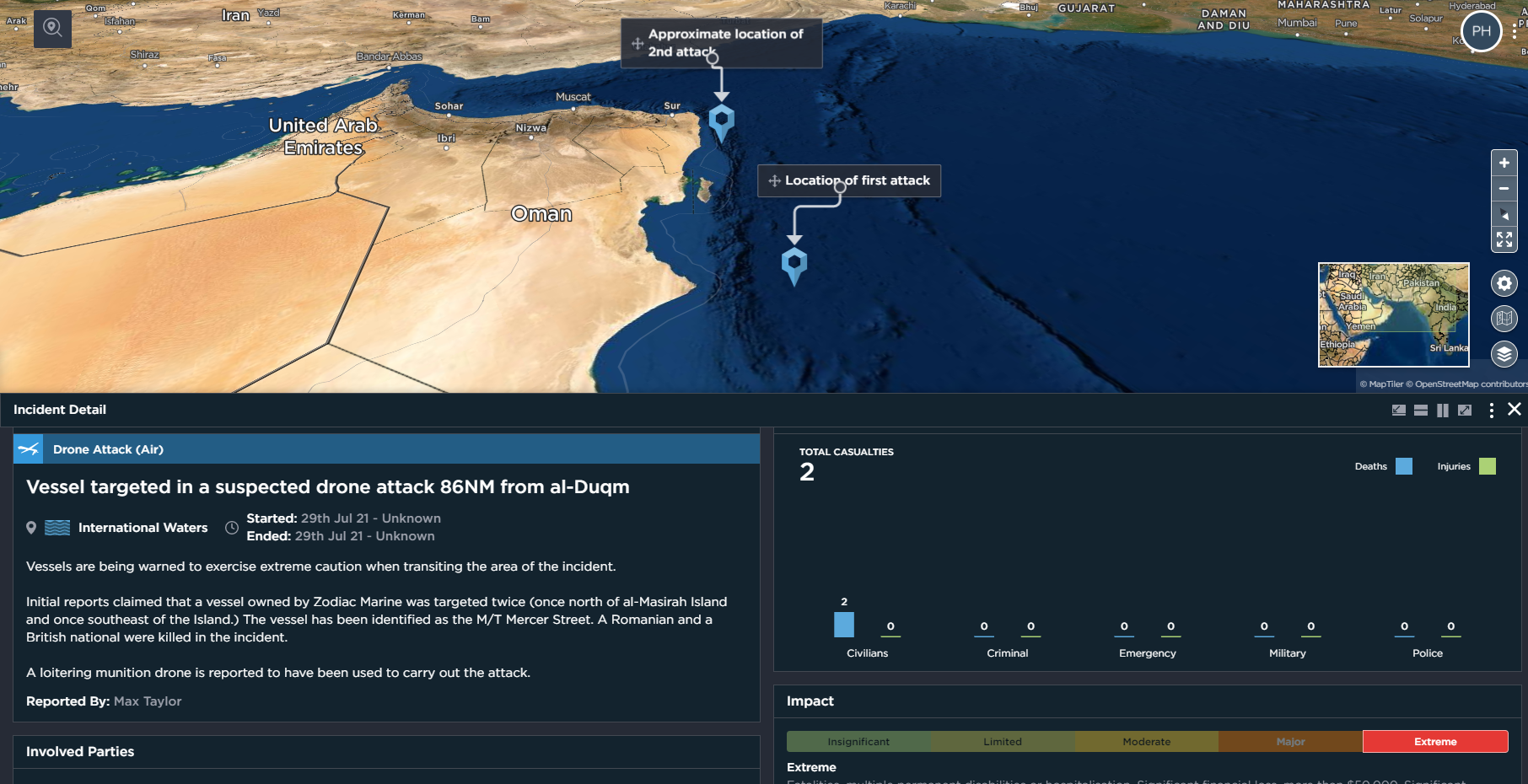
The attack on Mercer Street claimed the lives of two crew members, the first time these attacks have led to casualties [image source: Intelligence Fusion]
Hijacking of the Asphalt Princess
On 3rd August at 1230hrs UTC, five days after the above incident, the Asphalt Princess, a Panama flagged asphalt/bitumen tanker was reportedly seized off the coast of the UAE. The vessel is owned by Emirati free zone-based Glory International. The UK Maritime Trade Operations stated that a group of eight or nine individuals conducted an unauthorised boarding of the ship. The incident occurred 60 nautical miles east of the Port of Fujairah. Approximately 16 hours later on 4th August at 0430hrs UTC, the vessel was released. Maritime security sources have blamed the incident on ‘forces backed by Iran’, however, Tehran has denied any involvement. The Times of London has reported that the Asphalt Princess had been hijacked, citing British sources as saying they were “working on the assumption Iranian military or proxies boarded the vessel”. According to a report from the Times of Israel, at least six ships off the coast of the UAE broadcast warnings around the same time that they had lost control of their steering under unclear circumstances. In an audio clip which has been released, reportedly between the Asphalt Princess and the UAE Coast Guard, a person, possibly a crew member can be heard stating, ‘we have Iranian people onboard with ammunition and we are now drifting’. A person then asks the crew member, ‘how many Iranian people are onboard?’ and he replies, ‘around five to six people sir’.
Saeed Khatibzadeh, Iran’s Foreign Ministry spokesman was quoted as saying the recent maritime attacks in the region are completely suspicious and denied that Iran was involved. Abolfazl Shekarchi, Iran’s senior armed forces spokesman denounced reports of maritime incidents and hijacking in the Gulf area as “a kind of psychological warfare and setting the stage for new bouts of adventurism”. The Oman Maritime Security Centre said it had received information about the Asphalt Princess being subjected “to a hijacking incident in international waters in the Gulf of Oman”, but gave no further details.
[Comment] While the high-profile nature of the two incidents and short time period between them have led many observers to link the two together, it is difficult to say with any degree of certainty whether the hijacking of the Asphalt Princess is actually linked to the attack on the Mercer Street. As previously highlighted, the attack on the 29th July fit an established pattern of activity, being of a similar nature to previous attacks on vessels in the region, particularly those with links to Israel. It is likely that the attack was part of this precedent of Iranian backed and Israeli backed forces carrying out small-scale attacks as part of a shadow war between the two states, with the fatalities of the attack likely to have been unintended. The hijacking on 3rd August on the other hand does not fit with this established pattern, being UAE-owned and having no clear links to Israel. While parallels have been drawn in some quarters with the 2019 seizure of the British flagged Stena Impero, Iran had no issues claiming responsibility on that occasion, claiming that the tanker had broken regulations rather than deny responsibility as it has on this occasion.
However, Iranian backed forces have also used drones to attack Saudi Arabian and UAE based targets in the past, and there is the possibility that the 3rd August incident may have been a pre-emptive response to the first attack, which was followed by statements from the UK, US and Israel that they were preparing a response to it – it may have been a show of force from Iran in the face of any potential retaliation.
It may also be the case, though, that the Asphalt Princess hijacking bore no relation to the previous incidents, and was instead part of a separate dispute, only drawing attention because of its proximity to the 29th July attack. [Comment Ends]
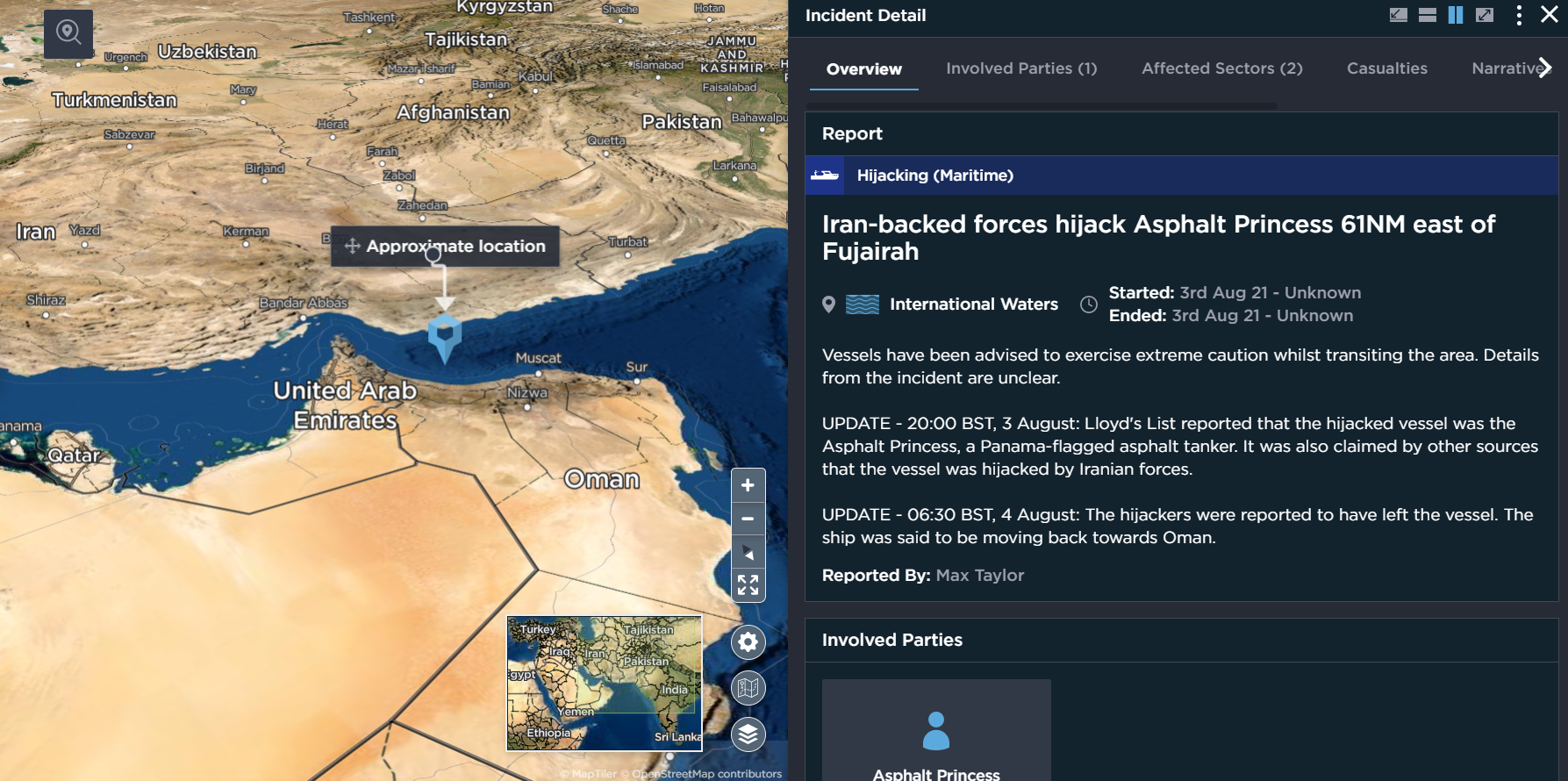
Iran-backed forces have been accused of hijacking the tanker Asphalt Princess, days after allegedly carrying out a deadly attack on a different civilian vessel in the region [image source: Intelligence Fusion]
Potential impact
Regardless of the link between the two incidents, it is likely that there will be a response to the fatal attack on the Mercer Street – so it is worth considering the potential impact this may have on the situation in the Gulf. As mentioned previously, the UK, US and Israel have all accused Iran of the attack, and vowed to respond – what this may look like is uncertain but as previously highlighted, Israel has a history of these tit-for-tat attacks, usually involving the attachment of limpet mines to Iranian-owned vessels in order to cause damage, and has retaliated in this way to prior attacks in 2021. The line from the head of the British Army General Sir Nick Carter that, “ultimately, we have got to restore deterrence” is of interest. Again it is uncertain what this deterrence could look like, but it could include an increase in British naval presence in the region. An imminent outright military response would appear unlikely, however.
What is very likely is that the rhetoric from all sides will continue to escalate. Tehran has already denied the allegations, claiming they are a pretext for “hostile action” against Iran. The Iranian embassy in the UK has stated that “misleading the public all around the world for diplomatic gain in New York is not fair game.” UK Prime Minister Boris Johnson, meanwhile, has said that Iran must “face up to the consequences” of the “outrageous” attack, with the Iranian ambassador to London summoned to a meeting at the Foreign Office where it was stressed that Iran must “immediately cease actions that risk international peace and security”. Israel’s Defence Minister Benny Gantz stated on Wednesday 4th August, that “it is time for diplomatic, economic and even military deeds. Otherwise the attacks will continue. Now is the time for deeds – words are not enough.”
It is worth noting the broader geopolitical tensions between Israel and Iran at this time, too. The shadow war currently being fought between the two nations has its roots in the tensions over Iran’s controversial nuclear programme – also on 4th August, Israel stated that Iran was “only 10 weeks away” from acquiring weapons-grade materials necessary for a nuclear weapon. The comments came a day ahead of the inauguration of Iran’s new president, Ebrahim Raisi, seen as a more conservative, hardline candidate than his predecessor Hassan Rouhani. Israel has previously been blamed for the sabotage attack on the Natanz facility in April 2021, as well as the assassination of one of Iran’s top nuclear scientists in November 2020. Iran, meanwhile, has significant influence among proxy forces on Israel’s border in Lebanon and Syria.
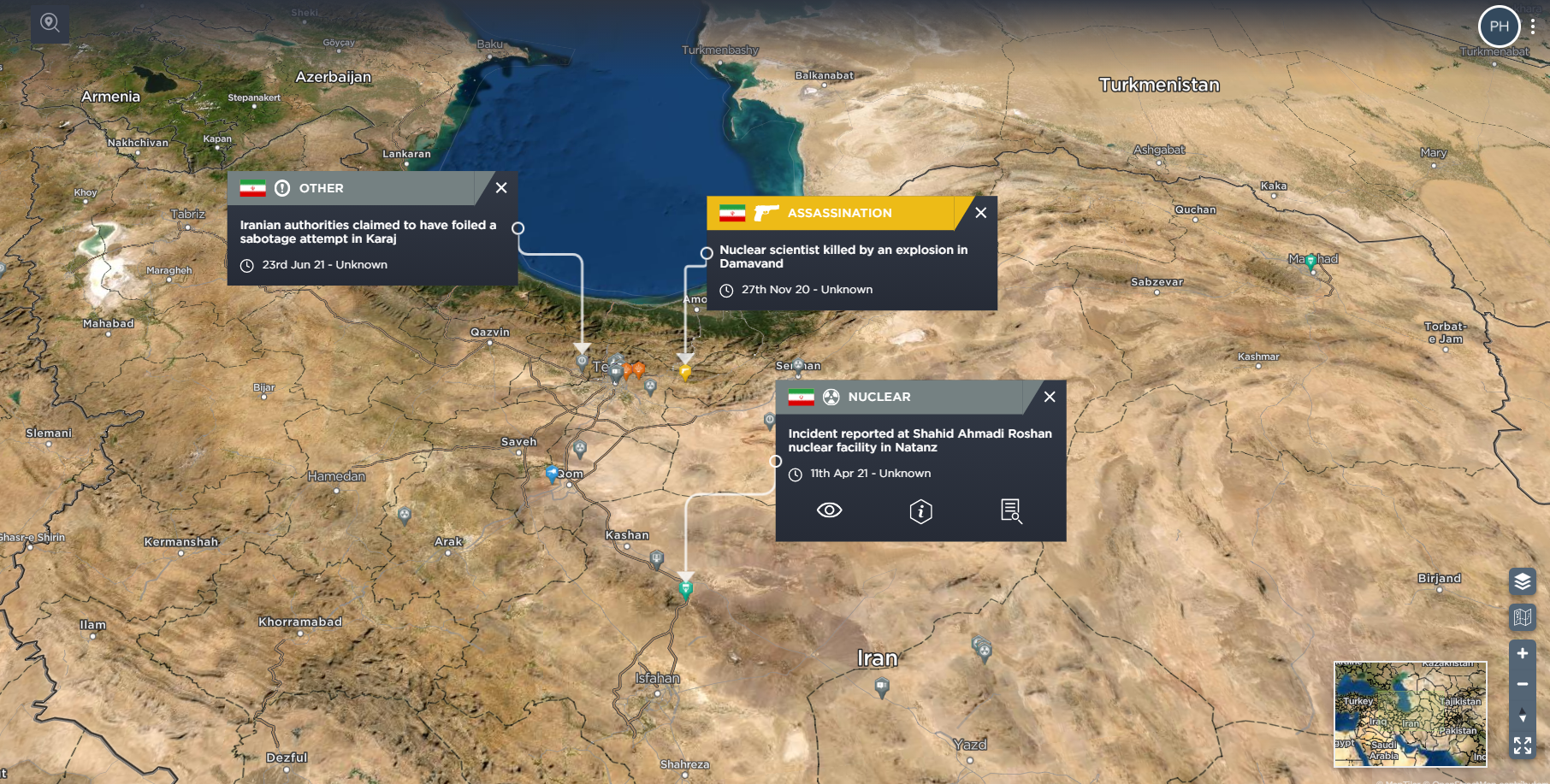
Iran-backed forces have been accused of hijacking the tanker Asphalt Princess, days after allegedly carrying out a deadly attack on a different civilian vessel in the region [image source: Intelligence Fusion]
Intelligence Fusion will continue to monitor the situation in the Gulf closely, including any responses or counter-responses to the incidents from the last week – as well as any continuation or escalation in attacks on shipping. To keep up to date with the tensions in the region and to better understand how we assist our clients, speak to a member of the team today.

